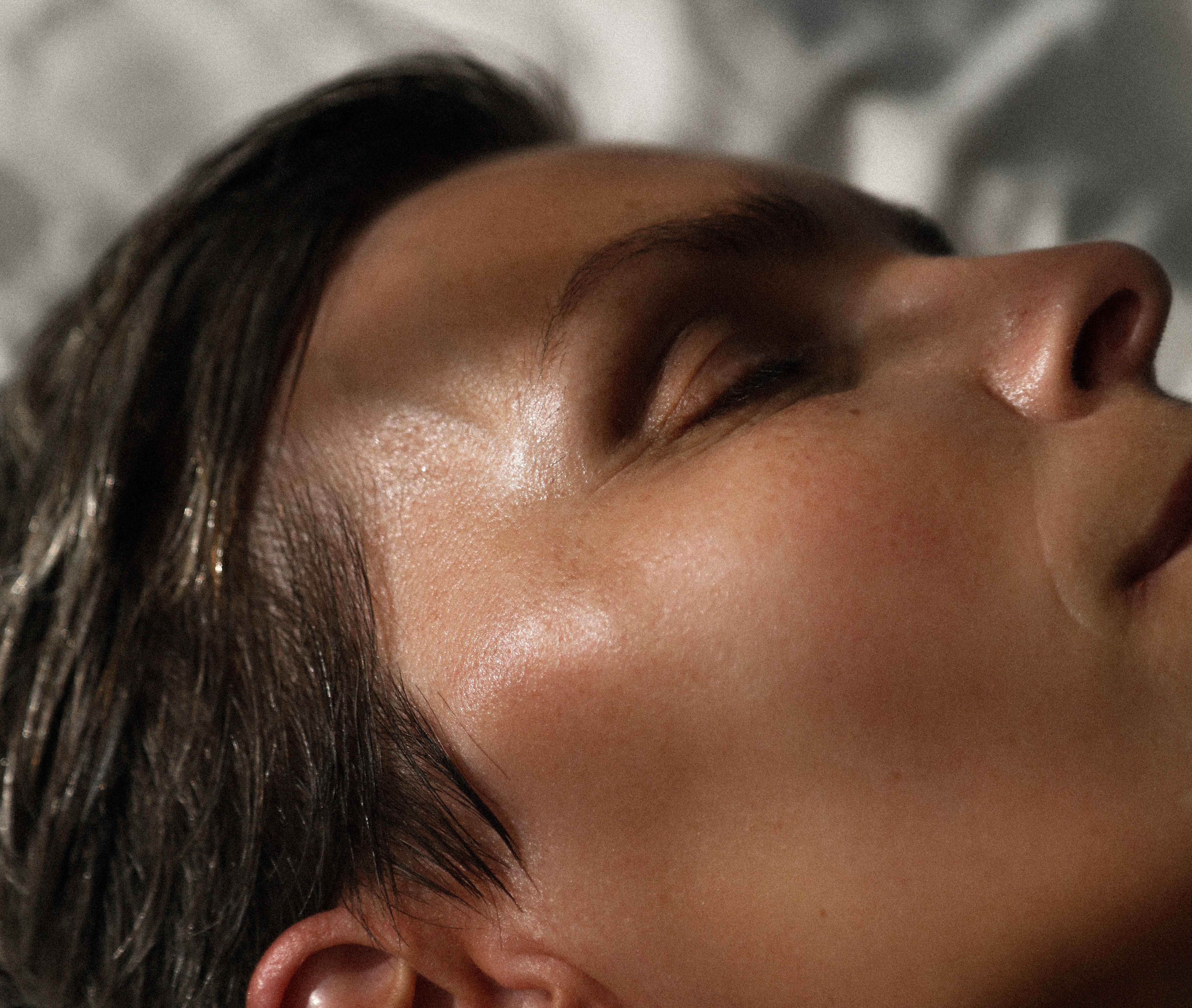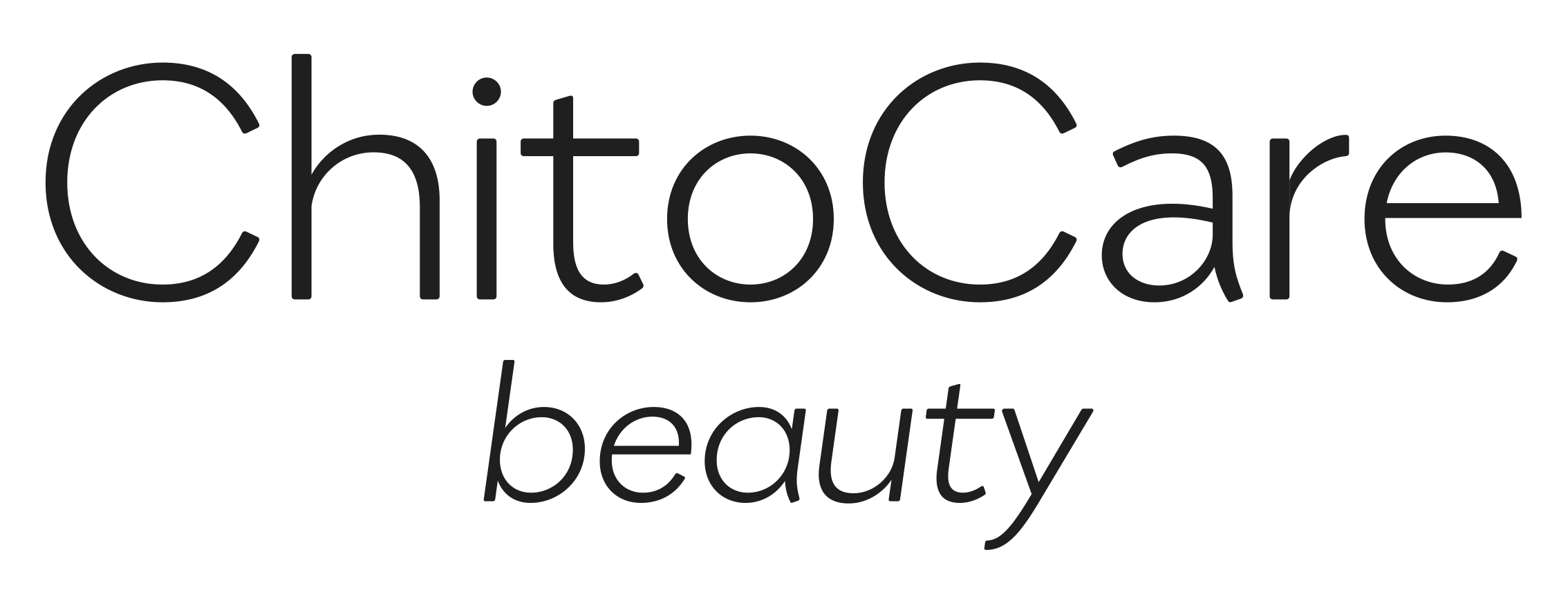
How UV Radiation Affects Your Skin
Time in the sun is always fun and at ChitoCare beauty we know how important it is to protect our skin from harmful sun rays. We break down the different types of solar and ultraviolet (UV) radiation and offer solutions on how to stay safe.
Solar radiation essentially gives us and everything on this planet life. The great poet Walt Whitman once wrote, “Keep your face to the sun and you will never see the shadows”. However, overexposure to the sun can pose a serious health risk, especially to our skin. Understanding the different types of solar radiation is essential to better protecting ourselves from it. As sun exposure causes up to 80% of the visible signs of skin aging, sun protection should become a major part of your skin care routine. Let’s take a look at what solar radiation is and what steps you can take to remain protected.
The solar spectrum
The sun emits electromagnetic radiation, encompassing all types of radiation. The part of the spectrum that reaches Earth from the sun is called the solar spectrum. Three relevant bands, or ranges, of the solar spectrum are ultraviolet (UV), visible and infrared. Some of this radiation is absorbed by the surface of the Earth, some is reflected back into the atmosphere, while portions of it are scattered by way of passing through natural surfaces. Most people are already familiar with UV light and why they can be harmful but blue light and infrared rays also affect our skin. Let’s see the differences.
UVA radiation
UVA radiation is everywhere around us, making up 95% of the UV radiation reaching Earth. It can reach us both indoors and outdoors, even on cloudy days, and can diffuse, reaching us through windows inside our car or house. UVA rays are responsible for long-term skin damage, including cancer and photoaging. UVA rays deeply penetrate the skin’s layers, breaking down collagen and elastin fibres, resulting in wrinkles, fine lines, dark spots, dryness and sun allergies.
UVB radiation
Unlike UVA rays, UVB radiation affects us outdoors and levels can vary depending on the time of day, latitude, altitude and weather. UVB rays mainly affect the skin’s outermost layer and can have both short-term effects, such as sunburn, and lasting effects, such as cancer. Thankfully, our body can usually tackle UVB radiation with antioxidants, repairing DNA damage and healing the skin. However, repeated sunburning or exposure to the sun without any protection highly increases the risk of skin cancer.
Blue light
Both UVA and UVB rays are invisible to the human eye and therefore we can often forget how ever-present they are. Blue light, on the other hand, sits within the portion of the electromagnetic spectrum that is visible to the human eye. High Energy Visible (HEV) light, popularly known as blue light, is what allows us the gift of sight. While natural blue light from the sun does have health benefits, such as boosting alertness, elevating mood and helping memory and cognitive functions, overexposure to blue light can destroy the complex structure of cells, causing dark spots, hyperpigmentation and premature aging.
Infrared rays
Infrared radiation is invisible to the human eye but we do experience it as heat. It is often used in physiotherapy treatment, as it can provide intense localized heat, reducing muscle pain. However, infrared rays deeply penetrate the skin, causing harmful oxidative stress that causes premature aging. It also works to amplify the negative effects of UV radiation.
How can I protect my skin?
The best way to tackle any issue, is to start by educating oneself on it, then taking appropriate action. To start, familiarize yourself with the UV Index. The UV Index is a way of measuring how strong sun rays are and the amount of skin damage they can cause. A moderate UV index reading ranges from 3 to 5, meaning a moderate risk of sunburn; a high-risk UV index reading ranges from 6 to 7, while a very high index reading ranges from 8 to 10. If you are unsure of how strong the sun is at any given time, just conduct a shadow test: if your shadow is shorter than you are, then the sun rays are at their strongest and you should protect yourself. Let’s see some of the most effective ways of staying safe in the sun.
Seek shade
While it is not possible or healthy to avoid sunlight completely, there is such a thing as “too much sun.” Up to 50% of daily UV light is emitted between the hours of 10am and 3pm, a time frame scientists call “solar noon”, so avoid the sun during those hours and opt for a shady spot instead. When exposed to sunlight, the outer layer of the skin thickens in order to protect the more sensitive inner layers. This leads to a lack of moisture, causing dryness, itching or inflammation. Furthermore, overexposure to the sun can damage collagen and elastin fibres, that provide our skin with growth and elasticity. To treat your skin after sitting in the sun, lather up with ChitoCare beauty Body Lotion, that provides great antioxidant protection while deeply moisturizing the skin for a more supple and smooth texture.
If you feel hot or sunburnt after a sunny day, soothe and cool your skin with ChitoCare medical Healing Spray. Apply as soon as possible on sunburns and as frequently as needed to reduce inflammation and skin damage. It will help scavenge free radicals and pro-inflammatory compounds produced during the sunburn inflammation process.
Cover up
Over 90% of UV light can penetrate clouds. By assuming you are safe from UV radiation just because it is a cloudy day, you are in fact putting your skin at risk. One easy way to protect your skin is to simply cover it up with clothing that covers your arms and legs. Dry, dark, tightly woven fabrics provide better protection than wet, light coloured and loosely woven fabrics.
The sun not only causes sunburn on the visible parts of your skin, it can also burn your scalp, which is more sensitive to burning as most of it is hidden under your hair. Wearing a wide-brimmed hat can prevent burning and heatstroke. Heatstroke, also known as sunstroke, is a life-threatening condition and should be taken seriously. When our body can no longer rid itself of excess heat, we can experience intense sweating (causing dehydration), nausea, fatigue, dizziness, shivering, even vomiting. One more reason to take caution, remain in the shade and cover up.
To complete your sun-proof outfit, wear UV-blocking sunglasses to protect your eyes and the sensitive skin around them. Cheap sunglasses without a polarized lens will only damage your eyes further, as their dark lenses trick your eye’s iris into enlarging and allowing more UV radiation to reach your eye’s cornea and lens. Investing in UV-blocking sunglasses will safeguard your eyes and eyelids from harmful UV rays that can cause cataracts, growths and eye cancer.
To give your skin a shot of intense moisture after sitting in the sun, apply ChitoCare beauty Anti-Aging Repair Serum. Featuring prickly pear stem extract that hydrates, firms and soothes irritated skin, chitosan that creates a protective and soothing film over the skin, and hyaluronic acid that has powerful moisturizing properties, this serum will nourish and calm your skin, increasing its elasticity and giving you a dewy, hydrated complexion.
Wear sunscreen
To protect skin that isn’t covered up while outdoors, apply sunscreen with a SPF (Sun Protection Factor) of at least 30 or higher every two hours. We often spend a lot of time in direct sunlight when we are on holiday, exploring a new city, going for a hike on a bright day or spending time at the beach or swimming pool. As UV damage can start before your skin tans or browns, always apply sunscreen before going out into the sun. Some people avoid sunscreen as it can clog pores, but even oily skin needs moisture and protection from the sun, so opt for a non-comedogenic sunscreen if you want to avoid that greasy residue. Also, keep in mind that up to 95% of UV light penetrates water, so it is crucial to allow sunscreen to be fully absorbed by the skin before taking a dip in the water.
Sunburn during a summer holiday is a common sight but we’ve all seen how winter skiers and snowboarders can also get rosy-pink noses and cheeks. That’s because fresh snow reflects up to 80% of UV light. While this means UV radiation is reflected back into the atmosphere, it also means that that same UV radiation is being absorbed by your skin and eyes in the process! Sunscreen and protective sunglasses, therefore, are paramount and should be combined with other protective measures. ChitoCare beauty Face Cream contains SPF 15, alongside moisturizing macadamia oil, restorative aloe vera, soothing soybean oil and protective chitosan, keeping your skin moisturized and protected during summer and winter. Follow it up with a high SPF sunscreen for full protection.
Eat your Vitamin D
When we are exposed to UV rays, our skin naturally produces Vitamin D and endorphins, those feel-good hormones that relieve pain and provide us with a general feeling of well-being and happiness. While Vitamin D has many health benefits, including lowering the risk of some cancers, experts say it is better to receive it directly from foods or supplements than by sitting in the sun. As for endorphins, you can increase your levels without spending time in the sun by exercising, dancing, meditating, laughing and even eating dark chocolate. After spending time in the sun, make sure to moisturize your hands with ChitoCare beauty Hand Cream, containing regenerative sunflower seed oil, protective coconut oil and hydrating Pseudoalteromonas Ferment Extract, alongside beneficial marine chitosan.


